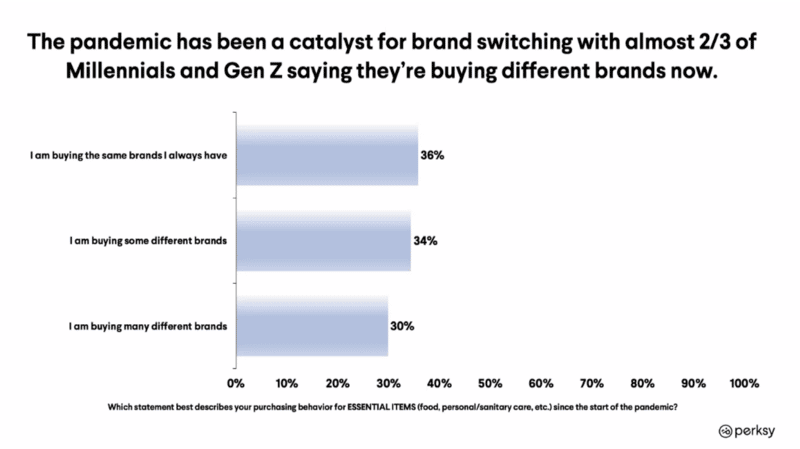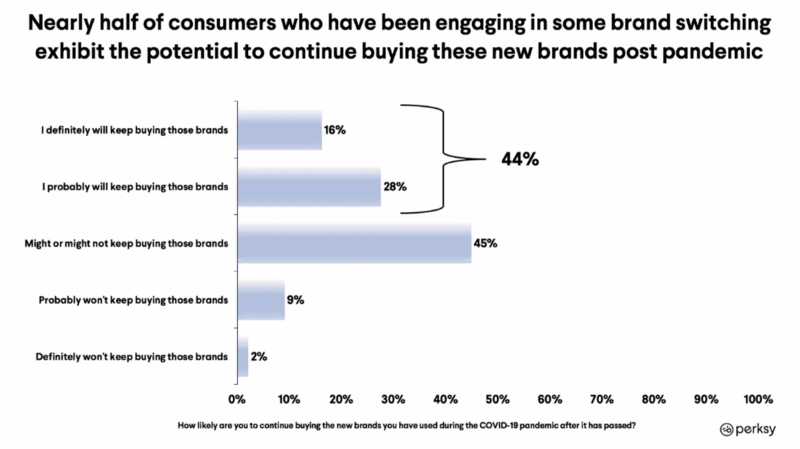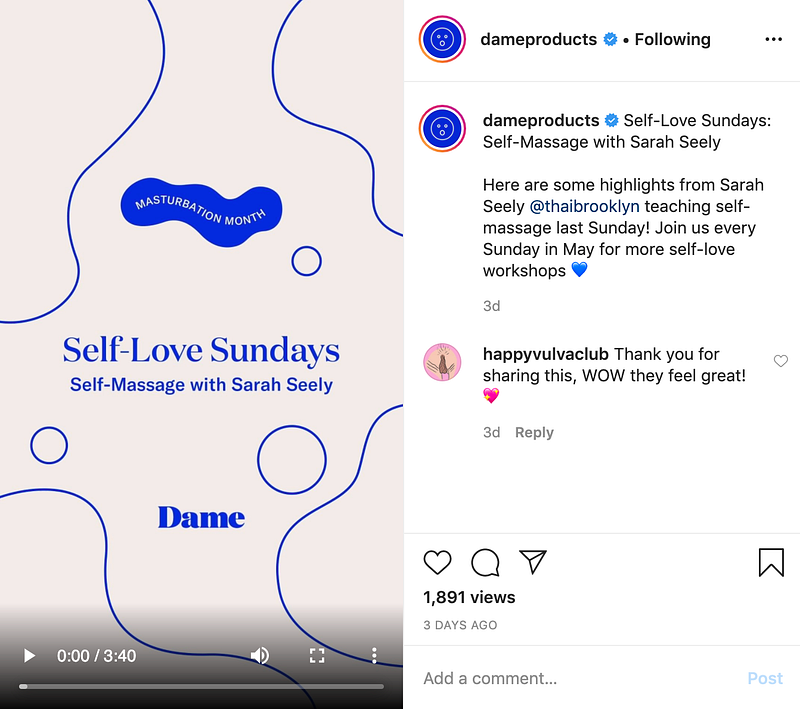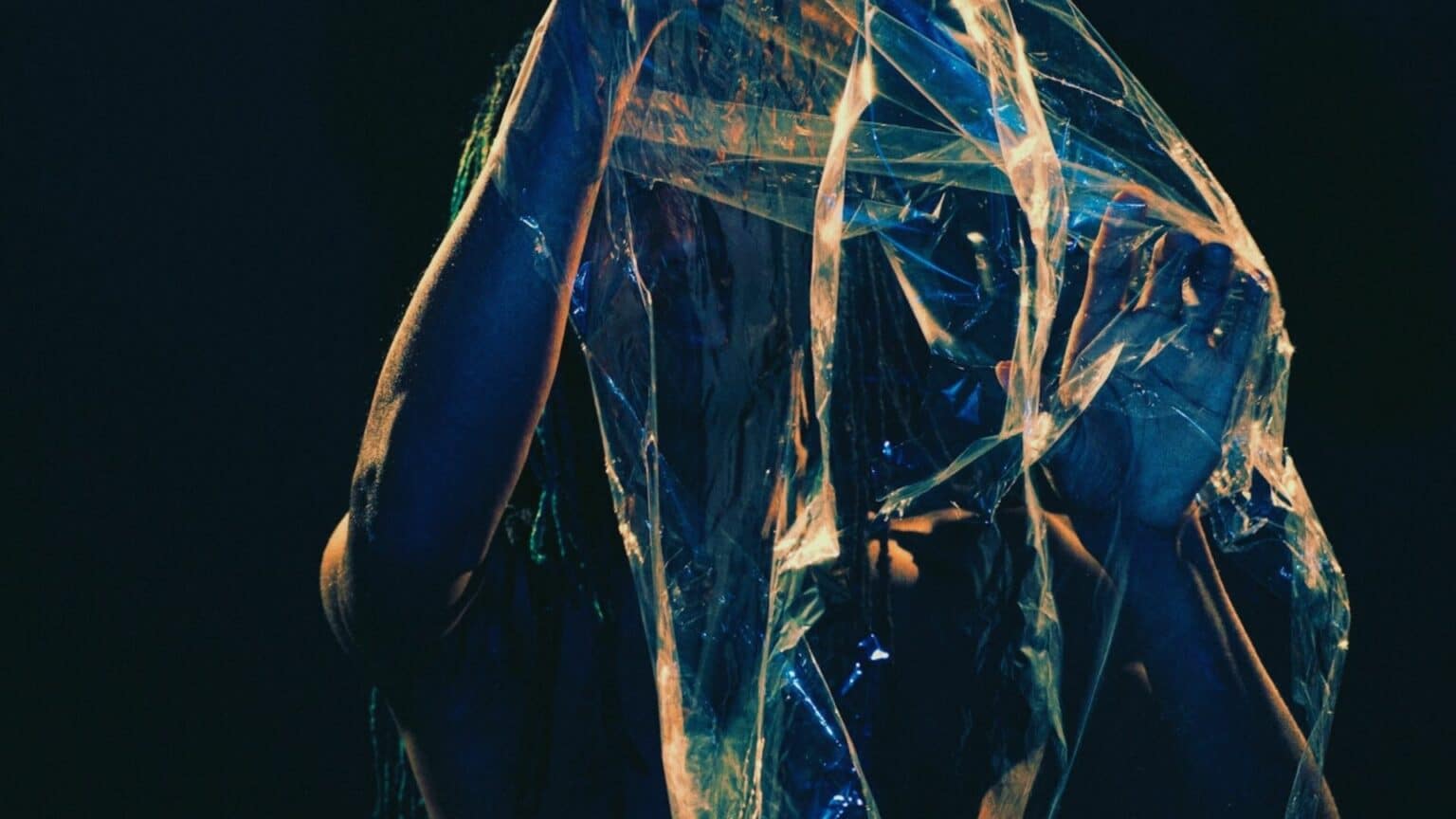Now is the time to decide if your brand is a habit or a ritual
When people or brands say, “We’ll get through this together,” or “After the Coronavirus has passed,” they’re revealing a lie in our collective words of encouragement.
There will very likely be no “before and after” COVID.
Instead, there will be a very slow tumbling of closures and business failures, amplified by a reshuffling of social norms and broken ideals.
Today, grocery stores have begun installing plexiglass barriers and safe standing zones for checkout, while airlines have less and less direct flights and stewards ask travelers to raise their hands to go the bathroom. Tomorrow will bring us ultra-hygienic hotels and contactless restaurants.
We won’t really know when we’re out of this, and that means we won’t go back to many of the habits that characterized our pre-COVID lives.
As business slows, the retail landscape contracts, lagging companies rush to D2C and we unwillingly embrace uncertainty in the face of a global deceleration, now is the time to ask yourself what your brand actually means to consumers.
Is your brand a habit or a ritual?
It’s an important question because there’s a good chance many habits will not survive the current climate, but rituals will.
And most of our habits are centered on the products we buy.
Habits make life easy. Rituals make life meaningful.
In a consumer study last month, market research firm Perksy found that 70% of Millennial and Gen Z buyers have already switched brands:

Granted, much of this brand switching is happening because of lack of availability, but even so, 44% of those who have switched brands are likely to keep buying those new brands after the pandemic has ended:

The vast majority of brands and products are consumed like habits — a regular tendency to repeat the same purchasing behavior because it cuts down on friction, cognition or effort.
We buy the same brand of chips, underwear or personal electronics because we already know we can trust them. Not because they’re the best, but because the effort involved in finding the best outweighs our current ‘good enough’ solution.
That’s why when those habits are effectively disrupted, it’s very easy to stay with the new solution, even if the old solution becomes available again.
But as brands large and small lose their customer base to manufacturing disruptions and retail closures, there is a segment of companies that is not suffering the same consequences.
As sociologist and brand executive Ana Andjelic has pointed out, “Show me what’s NOT accelerating and let’s figure out why.”
In her recent piece, Contradictions, Inversions, Oddities, and Coincidences, she notes that astoundingly, cruise ship bookings for 2021 are already outpacing bookings for 2019.
Moreover, “76 percent of the travelers who canceled a cruise in 2020 chose to take credit towards a future cruise in 2021, compared to 24 percent who opted for a refund.”
Cruise ships aren’t the only outlier here.
Peloton’s backorders extend out over 2 months (and continue to grow), while brands like the Mirror interactive system see huge spikes in conversion.
Yes, gyms are closed and people need a way to workout, but it seems that the very premium end of smart home workout systems is enjoying an outsized return. Even as social restrictions begin to ease, the demand for these brands continues to accelerate.
A new cottage industry for birthday parties and baby showers has sprung from ashes of the pandemic, with companies like Kiki Kit and Imagination Adventures parties offering experiential party planning that transcends the limitations of your typical Zoom call. These are immersive experiences that just happen to have a screen.
In LA, elaborate “Porch Pop-Ups” have shown up around town, with music and masked performers entertaining party goers from a safe distance on the front lawn (and even this past week, Elaine Welteroth’s stoop wedding in Brooklyn made news for its new take on celebration.)
All of these brands have one thing in common: they have ritualized the experience of their products.
We don’t fight for our habits, but we do fight for our rituals.
Rituals fulfill our current needs in a way that habits can’t.
They provide meaning in an uncertain time. They help us mark change and they tell us who we are.
It only makes sense that when our daily habits are ripped out of our hands, we hold on even tighter to the rituals that define us.
Even if your product is utilitarian in nature, or your brand is seemingly too inconsequential to be ritualized, there is a way to create greater context around your story so that you are no longer consumed like a habit.
But first, we need to understand what makes rituals so powerful.
Decoding the mechanics of a ritual.
How does a ritual actually work?
I spoke with Sasha Sagan, author of the book For Small Creatures Such As We, to answer this exact question for our brand strategy + culture podcast, Unseen Unknown.
Having grown up in a secular household with her father, astronomer Carl Sagan, and mother, author and producer Ann Druyan, Sasha’s work has been dedicated to finding meaning and rituals outside of traditional religion.
Whereas habits create ease and consistency, rituals create meaning.
According to Sasha, rituals provide us with an anchor and whether they happen daily, weekly, monthly or annually, they deepen with meaning over time.
Rituals tend to serve the same human needs:
- Rituals help us feel the passage of time and/ or appreciate change
- Rituals give us stability, order and routine in times of chaos
- Rituals help us sanctify and extract context from a situation
Every one of these emotional benefits is in high demand right now.
As crazy as it might sound to take a credit for a future cruise instead of taking a refund, keep in mind that a cruise is something to look forward to every year for some people. It helps us mark the passage of time.
The $2,400+ price tag for a Peloton seems exorbitant given the glut of other options in the market, but the well-documented cult-like experience of a cycling class gives people stability, order and routine.
Birthday parties, weddings and baby showers haven’t just gone digital. They have changed venues, changed artifacts, changed norms, and changed language, but the ritual persists as a way to sanctify the moment and extract context from a time in our lives.
It can be easy to dismiss these as unique situations — brands and products that came as a result of rituals that already existed before them — but that would overlook the value of storytelling in a brand.
In fact, there is an opportunity today for brands of all kinds to position their products not as habits, but as rituals (new or old) that help people extract one of these same pillars of meaning.
Oscar Meyer’s #FrontYardCookout invited neighborhoods to replace the tradition of a backyard barbecue with friends and family, and instead create an intimate (but socially safe) front yard cookout in their driveways.
Rather than talk about quick meals or feeding hungry kids sitting in front of a screen being homeschooled all day, they elicited the tradition of summer celebration.
The golden lighting, long shadows and lawn chairs remind you of warm weather rituals — moments for pausing to reflect on the year so far and gather, reconnect and solidify relationships.
Open Spaces, the home organizing company launched late last year by cofounders Emmet Shine and Nicholas Ling of Pattern Brands, has created some great content and storytelling around the act of cleaning and organizing your home.
View this post on Instagram
In their Space Tapes series, they explore “the lives of our community and what they’re listening to.” Each song is tied to a story about that person’s life, a reflection on their past and life journey.
Open Spaces sells home organization items like nesting trays and wire baskets, but content like this adds gravity to the act of cleaning your home. It’s about the ritual of cleaning your mind, your soul and your heart.
That may sound like an exaggeration, but considering the Marie Kondo platitudes that float around in our digital world, it’s no stretch to have people invite deeper meaning into their spring cleaning.
[You can listen to cofounder Emmett Shine talk more about how they built the brand on our podcast here.]
Dame, a high-minded, stylishly designed women’s sexual wellness brand has started Self-Love Sundays for the month of May, beginning with a lesson on self-massage.

It’s perhaps no coincidence that Sunday, a traditionally holy day, evokes thoughts of observation, pause and gratitude. The concept of self-love, even in a sexual context, feels far more intimate and important when celebrated on a weekly schedule.
None of these brands have typically ritualized products, but they found a way to either evoke a ritual or create one in their content, storytelling and positioning.
The products we need right now aren’t merely about ease and reduced friction. They’re about anchoring us, in whatever way possible, to the things that make us feel certain again.
“The essential difference between emotion and reason is that emotion leads to action while reason leads to conclusions.”
— Neurologist Donald Calne
Rituals are about emotions.
If you feel that your brand is positioned as a habit, find ways to message around the emotions that your product experience creates instead.
- Create a routine out of the experience that ties it to a sense of meaning, celebration, remembrance or normalcy
- Provide context that makes users appreciate a larger tradition through content, storytelling and positioning
- Offer meaning, identity or the marking/ significance of time as a benefit
Every brand tells a story. Think of the stories that your customers need right now, and start your narrative there.
This is the time to take big swings, ritualize your brand and try new storytelling. Bold moves will be celebrated. Well-intentioned mistakes will be forgiven.
Make your brand meaningful.




